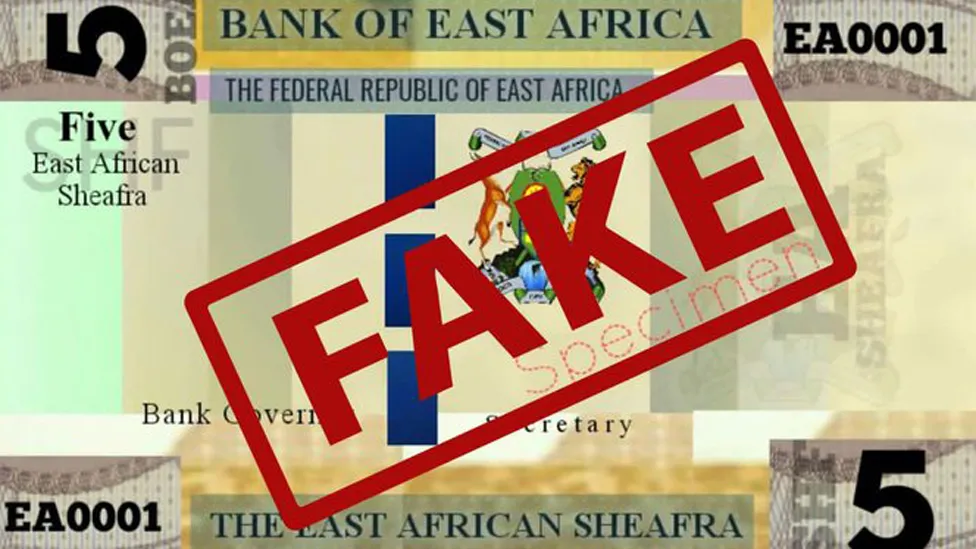TO the casual observer, it seemed like the long-cherished dream of a new single currency for East Africa had come to fruition.
An account on X, called “Government of East Africa”, complete with a grey tick suggesting it was the real deal, released an image of a specimen note worth five sheafras, featuring a coat of arms and a space for a signature from a central bank governor.
The name sheafra was coined by combining shilling of East Africa and franc – currencies in use in the region.
The original posts from last Sunday were viewed more than a million times, going viral after being picked up by major blogs and at least one popular online media outlet in Kenya. It was reported as a launch.
The truth was still putting its shoes on as the apparent news of the single currency spread.
Some enthusiastically welcomed the idea, while others debated the name and the design.
Finally, the East African Community (EAC) – a bloc of eight countries – stepped in to say it was not true.
The man behind what turned out to be a fake single currency said he was surprised at how the news spread and the attention it received.
Ugandan Moses Haabwa told the BBC that he wanted to offer hope to people in the region.
He is the self-styled overseer of what he calls the “Federal Republic of East Africa Government”, which does not exist.
The man, in his late 30s, is a relatively mysterious figure who says he has worked in the intelligence field. He currently runs a company that, among other things, says it carries out private investigations.
He also once said that he had been appointed the ambassador for an unknown European dukedom, which itself is shrouded in mystery and is probably a complete fiction.
For the past three months, the group that he leads has been releasing examples or “specimens” of different denominations of the sheafra on social media.







